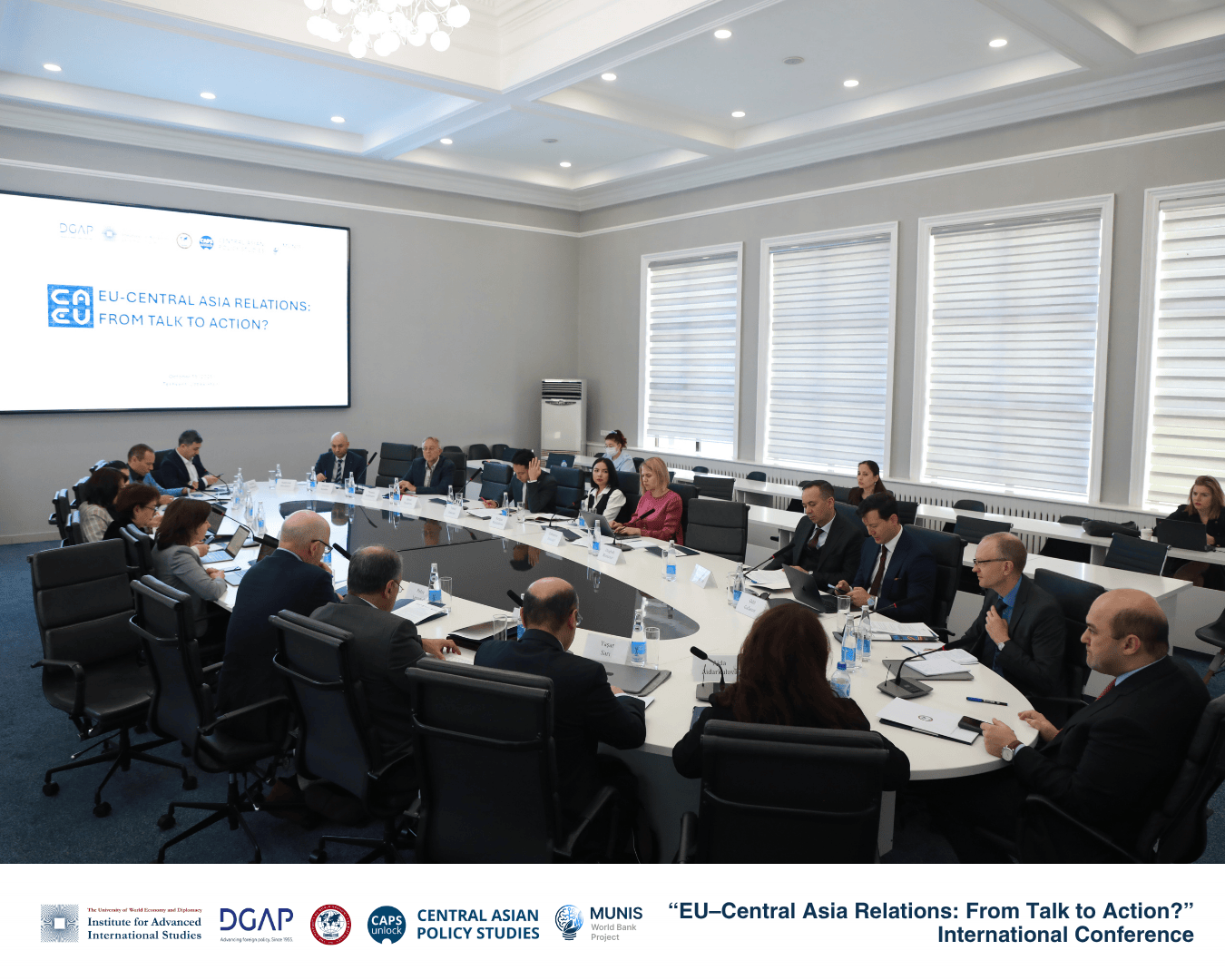
On October 15, the Institute for Advanced International Studies (IAIS) at the University of World Economy and Diplomacy, together with the German Council on Foreign Relations (DGAP, Berlin) and CAPS Unlock (Almaty), convened a one-day conference in Tashkent titled “EU–Central Asia Relations: From Talk to Action?”. The event, supported by the World Bank’s MUNIS project, brought policymakers, scholars and practitioners from Central Asia, the European Union and Türkiye to examine how political dialogue can translate into deliverable cooperation.
Against a backdrop of shifting global power balances, marked by a reduced US footprint and evolving Russian influence, participants stressed that closer EU–Central Asia engagement on industry, transport and connectivity offers a constructive path forward. Discussions were wide-ranging and candid, reflecting both optimism about Central Asia’s potential and healthy disagreements over policy priorities and sequencing.
A number of areas of convergence emerged. First, regional cooperation within Central Asia was identified as essential to increasing the region’s capacity to make decisions independently of external pressures. Second, interregional and diversified connectivity, including transport corridors, logistics and energy links, was deemed indispensable for security, trade and long-term development. Third, the European Union was seen as well placed to contribute as a norm-setter in fields such as environmental protection, labour standards and data security.
Speakers underscored that moving from ideas to implementation will require more than dialogue. Priorities include credible investment frameworks that translate commitments into bankable projects, and partnerships that engage not only governments but also local communities, businesses and independent institutions to ensure impact and accountability.
The debate also recognised China’s accelerating role as a driver of technological and infrastructural change across the region, reshaping trade routes and logistics. Participants argued that, if the EU aims to play a decisive role, it will need sustained, coherent and multisectoral engagement, closely aligned with regional development strategies.